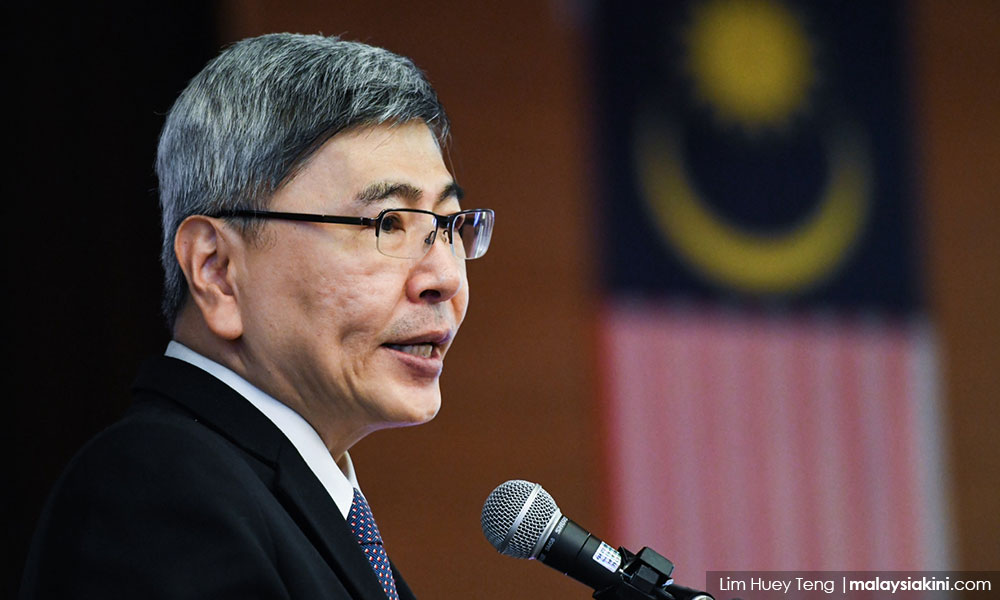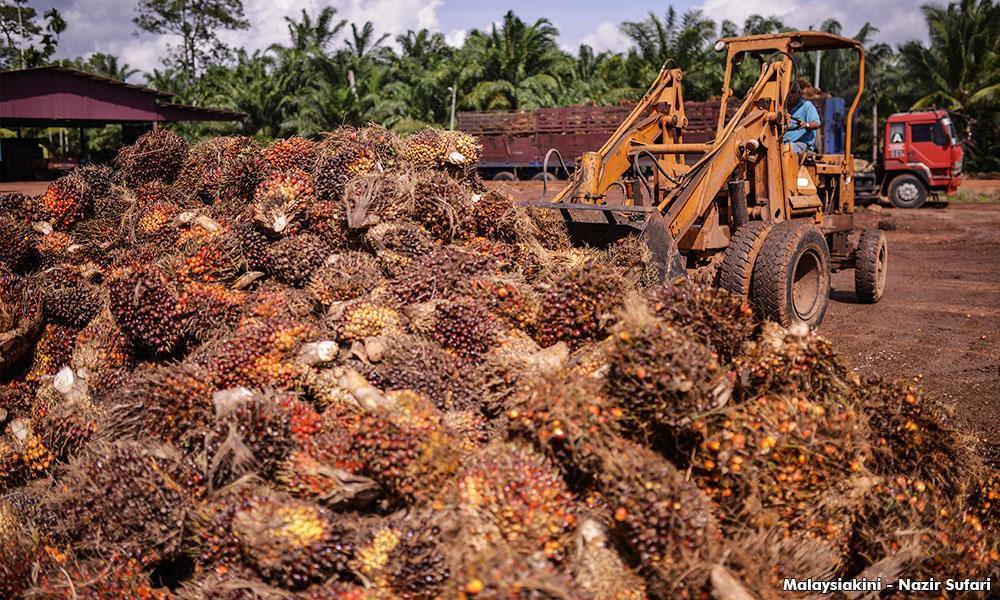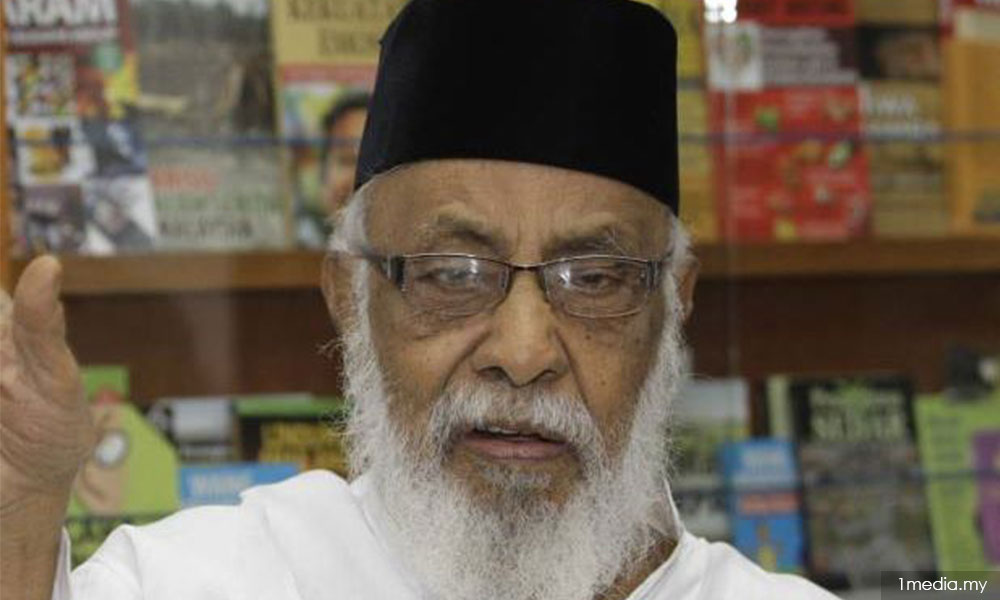COMMENT | If the scenario of 'a perfect storm' comes to be, the resolutions against the use of palm oil in biofuel will take place by 2021 in and across the European Union (EU).
To reach such a stage, the European Commission and the Council of European Ministers, together with all 27 member states of the EU would have to separately agree on the ban.
It is a tall order, but one where the likelihood cannot be dismissed entirely out of hand for three reasons.
One, just as no one predicted Brexit in June 2016, it happened. By March 29, 2019, the United Kingdom would have to leave EU, making it a body of 26 member states rather than 27.
Two, with the UK gone, Malaysia's reliance on the nation as a strategic partner and defender of EU would also disappear accordingly.
Not surprisingly, Malaysia has begun cultivating France and Sweden, to speak out against the EU ban of palm oil in the use of biofuel.
At two million tonnes exported a year to EU, the business is both considerable and large. If Malaysia loses the EU as a trading partner for palm oil, the livelihoods of some 650,000 oil palm plantation owners in Malaysia would be affected.

This is a figure that has been touted by none other than the Deputy Prime Minister Ahmad Zahid Hamidi himself and seconded by Minister of Plantation Industries and Commodities Mah Siew Keong (photo) on Jan 30, 2018.
Now, the Minister of Trade and International Industry Mustapha Muhammad, can, of course, argue that any EU ban would be brought to the arbitration of the World Trade Organisation (WTO).
But that would practically pitch Malaysia against 26 countries in the EU. Even with the 16 Malaysian missions in EU, Malaysia does not have the strategic and operational depth in Europe to launch a successful anti-EU campaign.
Even if the research network and science of Malaysian Palm Oil Council (MPOC) and Malaysian Palm Oil Board (MPOB) are called into action, neither one is sufficiently strong to make a dent on the EU ban by or before 2021.
Three, the ban on palm oil revolves around sustainable development. By this token, it is associated with good governance and government integrity - both of which Malaysia is totally lacking due to a government that has been hijacked by vested interests and kleptocracy.
When the right hand does not know what the left hand is doing, as is the case with Malaysia, where FGV Global of Felda is entwined with the business interest of Indonesian Peter Sondakh of the Eagle High Plantation, the latter heavily opposed by the Felda settlers NGO Anak, then the lack of any standing in the country and the world would not allow Malaysia to wage an effective action to counter EU palm oil ban campaign.
M'sia must transcend limitations
So what are the solutions? The key is to learn from the current steps, after which Malaysia must then transcend these limitations.
To begin with, Indonesia has tried to go it alone by formulating what is known as the Indonesian Sustainable Palm Oil certification (ISPO). They have embarked on doing this at a scale of 300 hectares in Riau, Indonesia.
While the United Nations Development Programme (UNDP) is aware of Jakarta's attempt to upgrade its standards of sustainable development, UNDP argues that it is not as comprehensive as what the United Nations demands.
In other words, ISPO does not meet the standards of the Paris Climate Change Agreement or the UNDP Sustainable Development Goal 12.
To be sure, UNDP, which now has an office in Putrajaya - though it is not linked to the Malaysian government in any way - admits that palm oil is an important commodity and a versatile raw material for both food and non-food industries.

By this token, palm oil for food industries would not disappear completely from the EU. Only palm oil as a part of biofuel would be in peril when the ban is enforced. UNDP understands the latter very well.
Thus, UNDP is goading Indonesia and Malaysia to reach the sustainable development standards defined by the Paris agreement and UNDP Sustainable Development Goal 12.
Furthermore, the mere formation of the Roundtable on Sustainable Palm Oil (RSPO) and the Malaysia Roundtable on Sustainable Palm Oil (MSPO) initiative would not necessarily impress UNDP too, as UNDP has seen how ISPO has been done in Indonesia and understood its shortcomings.
Secondly, the EU controls up to 80 percent of the rapeseed, soybean and sunflower seed business in the world. Thus, the EU itself has every interest to promote these three commodities, vis-a-vis palm oil. In the latter, it is Indonesia and Malaysia that are the top monopolies, with nearly 90 percent of the market share.
Near impossible to counter EU
However, it would be gravely mistaken if Malaysia and Indonesia form an alliance - the current thinking of Prime Minister Najib Razak - to counter the EU together. The reason isn't so much the lack of resources, as Jakarta and Putrajaya can combine their money and diplomatic personnel to undertake the campaign to disabuse the consumers and buyers in EU of the sustainability of Asian palm oil.
But, if Malaysia and Indonesia lock themselves into an alliance, then Putrajaya would be burdened by the slowness of the Indonesian reforms - as close to 50 percent of Indonesian oil palm plantations still held by small plantation owners. These farmers and planters lack the assistance from Jakarta to comply with the standards of EU and UNDP, let alone the Paris agreement. When Indonesia is slowed down, Malaysia is just as deeply affected, too.
Thirdly, the prospective EU ban is occurring at a time when the green environmentalists in the EU Parliament are either calling for the use of more electric cars or carbon-free transportation systems like buses that run on gas, petrol and diesel.
Malaysian diplomats and Malaysian palm oil specialists do not have the proverbial wind in their sails to put a check on such a green movement. The very fact that the green movement can get their governments to agree to the Paris agreement, in and by itself, suggests massive organisational and lobbying power.
If Malaysia screams "palm oil apartheid", as is the rallying call of Mah, or "unfair trade practice", then the NGOs and environmental think tanks in the EU will undertake a massive campaign to go against the use of Malaysian palm oil in biofuel, if not Malaysian palm oil per se.

If anything, Malaysia needs to work closely with organisations like the Third World Network and the Consumers Association of Penang (CAP), which are led by Martin Khor and SM Mohamed Indris (photo), respectively, to counter the campaign of anti-palm oil in and across EU.
To work with Khor and Idris, one would have to assure them that Malaysia will protect the rights of the consumers and labourers - without which neither one of these two distinguished Malaysians would want to do the government's biddings just because they affect the likelihood of their fellow Malaysians.
More importantly, the one that should make the NGO overture to Khor and Idris should be the NGO of Felda settlers itself i.e., Anak. In addition, the Malaysian palm oil producers, including Genting Group, Sime Darby, IOI and Tradewinds Plantations, should also have a roundtable on how to improve the welfare of the workers and management, in addition to the sustainability of the palm oil.
Finally, FGV Global, together with the banks that have extended the credit facilities to the Felda planters, have to either waive the bad debt of the borrowers who have invested heavily in the palm oil sector, or reduce the size of their debts, without which the planters will carry too big a financial burden to be able to comply with the standards of UNDP and the Paris agreement.
Concurrent to all the above measures, Malaysia should also pivot to improving its palm oil bulking stations. If palm oil is left at the ports or train stations longer than two weeks, the quality of the oil would begin to degrade - thus affecting the stock prices of the palm oil in the open market.
Anyone who can have the monopolistic power of the palm oil bulking stations must be stopped, regardless of whether that company is controlled by an individual tycoon or some other special purpose vehicles and entities.
When the likes of these tycoons can affect the quality of the palm oil at the bulking stations, they will stand to gain from the price fluctuations, whether the price goes up or down.
In this sense, there is a need for an Asean palm oil watchdog that works closely with UNDP, which is already a dialogue partner of Asean - not unlike the EU, which is also a dialogue partner of Asean.
But, as a start, Malaysia should get the ball rolling by aspiring to achieve the highest standards of UNDP, EU and the Paris agreement for now, before waiting for the scenario of the EU perfect storm to become a material reality.
RAIS HUSSIN is a supreme council member of Bersatu and head of its policy and strategy bureau.
The views expressed here are those of the author/contributor and do not necessarily represent the views of Malaysiakini.

